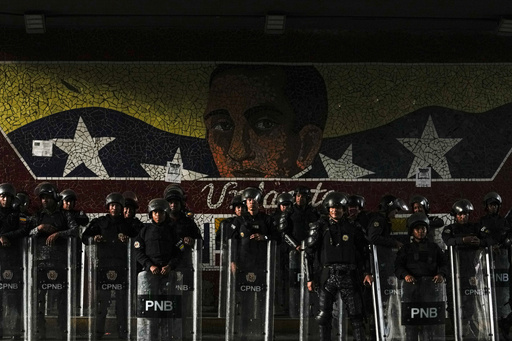In Venezuela, a concerning situation surrounds the disappearance of 33-year-old political science professor Edni López. She was last heard from on Sunday as she was set to travel to Argentina but expressed concern about her passport at the airport. Subsequently, she was discovered to be detained by the military intelligence police of Venezuela on unspecified charges, leaving her family and friends distressed and unable to contact her.
These events are part of a broader context of fear and repression in Venezuela, which has intensified following the disputed presidential election. Since the election on July 28, over 2,000 individuals have been arrested by security forces for various reasons, including expressing doubt about President Nicolás Maduro’s victory. The crackdown, encouraged by Maduro, stands out as one of the most severe waves of human rights abuses in Latin America since the 1970s military dictatorships.
Among those detained are journalists, politicians, campaign workers, and activists, with some having their passports invalidated. The atmosphere of repression has instilled fear in the population, leading to a reluctance to engage in any form of protest or dissent. The government’s actions have swiftly and significantly stifled opposition voices and activities.
President Maduro has issued stern warnings to dissenters, urging citizens to report election doubters and indicating preparations to incarcerate more opponents. The nature of government opposition has evolved, with spontaneous and leaderless demonstrations emerging, notably involving youth from marginalized areas of Caracas who were historically in support of the government.
The crackdown, named “Operation Knock-Knock,” has intensified swiftly, with an alarming number of arrests in a short period, eliciting concerns of state terrorism from human rights organizations. In neighborhoods once supportive of the ruling party, residents are deleting evidence of protests from their devices out of fear of reprisal.
Venezuela’s human rights record was already under scrutiny before these recent events, with Maduro facing an investigation for human rights violations by the International Criminal Court. The current tactics employed in Venezuela bear similarities to past oppressive regimes in Central and South America, inflicting fear and silencing opposition through arrests and intimidation.
While the methods employed by Maduro may differ from historical contexts, the underlying objective of generating fear and control remains a shared feature, as highlighted by human rights experts and activists.
